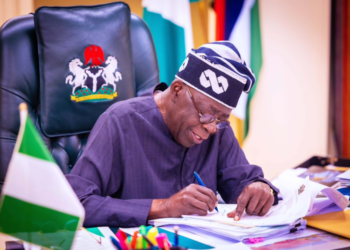The Kremlin has reaffirmed Russia’s role as a dependable grain supplier despite facing obstacles created by Western countries, asserting that Russia remains committed to providing grain to global markets. Kremlin spokesman Dmitry Peskov addressed concerns regarding food shortages in Africa, dismissing allegations that Moscow’s actions were contributing to the crisis.
In July, Russia exited an agreement that permitted Ukraine, a significant global grain exporter, to ship its produce through Black Sea ports. This decision was taken amidst Russia’s invasion and military control of Ukrainian waters, as well as Western sanctions impacting Russia’s food and fertilizer exports. The move aimed to stabilize global prices, but concerns arose over potential consequences for food availability.
When queried about claims from Ukraine’s Security Council that Moscow was exacerbating food shortages in Africa, Peskov vehemently rejected the allegations. He termed these accusations “completely baseless” and a “deliberate distortion of reality,” emphasizing that Russia’s actions were not linked to the food shortages experienced on the African continent.
Peskov further highlighted Russia’s commitment to addressing global food challenges, even in the absence of the previous grain agreement. He cited Russia’s initiative to provide free grain to some of the poorest countries in Africa, underlining that Russia continues to take a responsible position despite the challenges.
Russia’s President Vladimir Putin announced plans to donate up to 50,000 tons of grain to six African countries as a measure to alleviate food shortages. While this quantity may not entirely resolve the issue, Russia’s gesture signifies a dedication to helping those in need.
Additionally, Russia has proposed an alternative grain shipment scheme involving Turkey and Qatar. However, Peskov noted that no concrete outcomes have emerged from this initiative yet. The proposed plan includes Qatar guaranteeing deliveries of free grain to African countries, positioning it as an alternative to the Black Sea grain deal.
In the midst of these developments, Turkey has pursued negotiations with Moscow, seeking a return to the previous Black Sea grain agreement. Turkish President Tayyip Erdogan is scheduled to meet Russian President Putin on September 4 in Sochi to discuss issues related to Black Sea grain exports. While Russia’s actions have spurred debates and diplomatic efforts, its commitment to being a responsible grain supplier remains central to its stance in the global food market.











